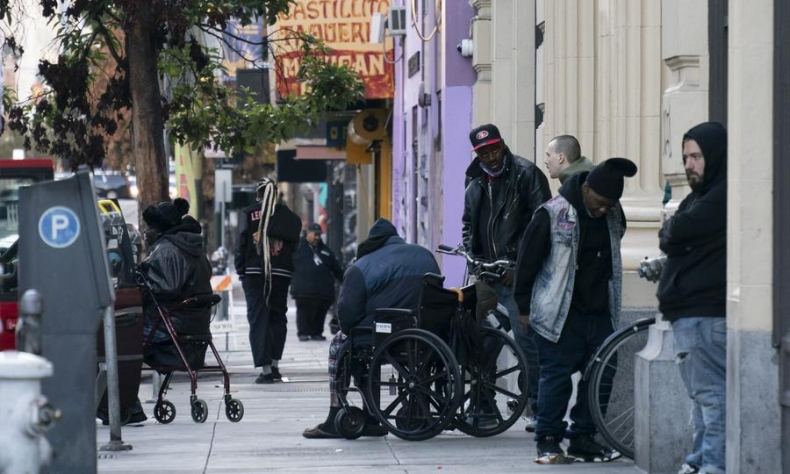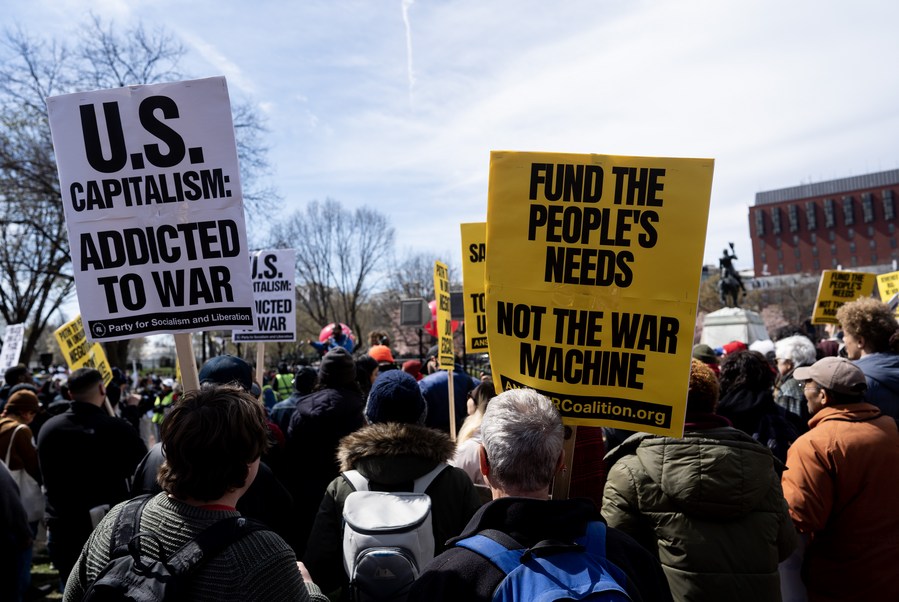Money for War, But Not the Poor

Homelessness and poverty can never be resolved so long as the U.S. is governed by a capital-first economic order which prioritizes war at the expense of the people.
The problem of homelessness in the United States has become increasingly pronounced in recent years. According to the Department of Housing and Urban Development (HUD), homelessness rose by 12 percent in 2023, and 18.1 percent in 2024. Currently, approximately 770,000 people in the U.S. are classified as “homeless,” though this figure is likely a significant undercount. The federal government measures homelessness by counting those people sleeping in shelters and on the streets during a single point-in-time survey each year. This method does not count the millions of people sleeping in the homes of family, friends or otherwise because they simply cannot afford the steep cost of housing.
Modern homelessness in the U.S. can be traced back to a massive reduction in government spending for housing services beginning in the 1980s. During the Ronald Reagan administration (1981-89), the HUD budget was cut, leading to an 80-percent decrease in funding for housing assistance programs. Simultaneously, the U.S. “de-institutionalized” residential mental health services and replaced affordable housing with minimal “homeless services.”
U.S. wages stagnated, housing prices soared and a renewed corporate assault on organized labor left millions in a state of housing insecurity.
Iconic U.S. rapper Tupac Shakur (1971-96) was born from these conditions and summarized their cause as such: “They have money for war but they can’t feed the poor.”
Unlike basic needs like food and housing that Shakur referenced, the U.S. military budget has not been subject to government spending cuts. In 1980, the U.S. spent about $143 billion on “defense.” In 2024, this number rose to $883 billion. The Pentagon has failed its last seven audits and cannot account for nearly half of its 4 trillion in assets.
It is no coincidence that military spending has increased alongside homelessness in the U.S. Major corporations that dominate the real estate sector also invest heavily in war. For example, Vanguard and BlackRock, two of the biggest investment firms in the world, pour billions into weapons contractors such as American aerospace and defense company Boeing. These same corporations then lobby U.S. politicians to slash public services that are not deemed “profitable.” The funds are then diverted to subsidies that serve the interests of the major corporations, with the bloated U.S. military budget being one of the prime examples of this.

This web of corporate and military interests has a profound impact on U.S. foreign policy. Former President Joe Biden campaigned in 2020 on the promise to “Build Back Better” following an economic crisis and a pandemic that caused immense damage to the economy. But instead of prioritizing issues such as homelessness, poverty, and other social predicaments facing many working-class Americans, the Biden administration entangled the U.S. in complex international conflicts, specifically in Ukraine and West Asia.
Homelessness and poverty can never be resolved so long as the U.S. is governed by a capital-first economic order which prioritizes war at the expense of the people. In fact, they will continue to worsen. But it’s even deeper than this. A governance system that has played such a central role in the displacement of Palestinians in Gaza cannot be expected to properly address the housing instability currently plaguing large portions of the U.S. population.
For real change to happen in addressing homelessness and poverty, there needs to be a shift in focus toward investing in social programs that support the wellbeing of all Americans.
Geopolitics directly affects the daily lives of ordinary people. The way a governance system approaches foreign policy has a direct impact on domestic policy. In the U.S., an aggressive foreign policy has coincided with large increases in homelessness and economic despair. In China, a peaceful foreign policy of non-interference has opened the door toward immense achievements in poverty alleviation, infrastructure development, and economic prosperity.
Peace can pay dividends. But only under a system that allows it to thrive.
The author is an independent journalist and researcher in the U.S. He is a contributing editor to the Black Agenda Report and founding member of the No Cold War international campaign.
 Facebook
Facebook
 Twitter
Twitter
 Linkedin
Linkedin
 Google +
Google +










